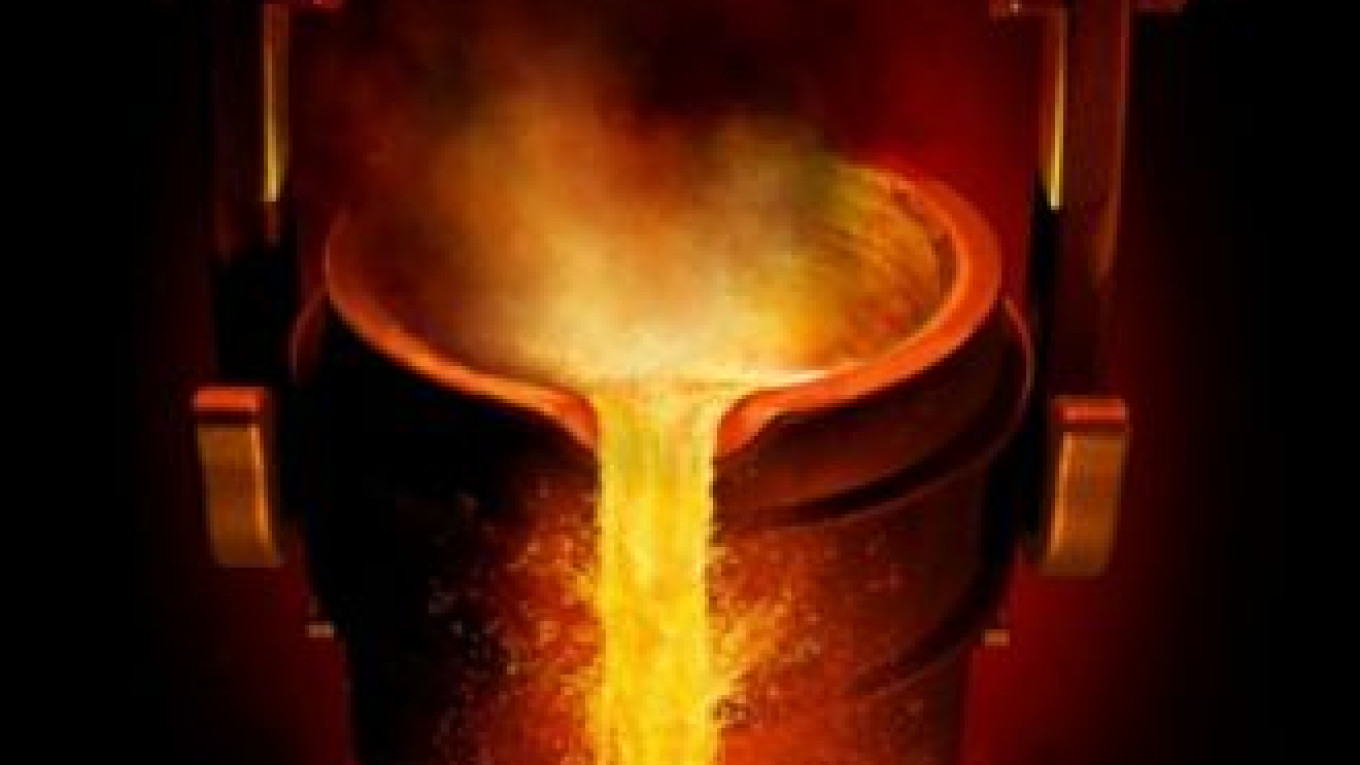Billionaire Alexei Mordashov's Severstal saw a 63 percent drop in net profit last year to $762 million as a result of weak metal prices and a decline in domestic sales volumes, the steel giant said Tuesday.
Severstal, the country's second largest steelmaker, posted full-year revenue of $14.1 billion, down 10.8 percent from 2011, while earnings before interest, taxes, depreciation and amortization slid 41 percent to $2.1 billion.
Despite the challenges facing the global steel industry last year, the company delivered resilient results, with the EBITDA margin, a key ratio showing a company's profitability, standing at 15 percent, Mordashov said in a statement.
Fourth-quarter results were negatively affected by a seasonal decline in domestic consumption and? "by weak economic conditions globally," said Mordashov, who is also the company's chief executive officer.
Severstal posted a net loss of $150 million in the fourth quarter, against a profit of $329 million a year earlier. The company said that was the result of goodwill impairment, meaning a decline in value of intangible assets, at its U.S.-based miner PBS Coals and also of write-offs attributed to the sale of three North American mills in 2011.
The fourth-quarter results were below analysts' expectations. The consensus forecast compiled by Reuters for net profit was $50 million.
Revenue for the period slid 13.2 percent to reach $3.1 billion, in line with analyst expectations.
Mordashov said the company is preparing for another challenging year, although he didn't rule out the possibility of consumption growing slightly.
"Global economic conditions remain uncertain for the steel industry. However, we believe that we could see some improvements over 2013 in demand for steel, iron ore and coking coal," he said. ?
The company's performance this year will largely depend on whether domestic steel consumption recovers, driven by demand from automakers and developers, Roman Tkachuk, a senior analyst at financial advisory firm Nord Capital, said in a note. ?
Mordashov said domestic consumption, whose annual growth rates slowed from 13 percent in 2011 to just 2 percent in 2012, might see support from construction and infrastructure projects this year as Russia prepares for the 2014 Sochi Olympics and the World Cup in 2018.
Severstal expects demand in the United States, its second key market, to come primarily from the automobile industry, while pipeline manufacturing is also likely to contribute to consumption growth.
Although signs of recovery are already visible, "the fragile economic environment will keep pressure on steel prices throughout 2013," Mordashov said.
Last year, the company was selling hot rolled and cold rolled steel in Russia at an average price of $613 per metric ton and $710 per metric ton, respectively, down 16 percent from the 2011 price.
The decline reflected a global downward trend, said Andrei Tretelnikov, an analyst at Rye, Man and Gor Securities.
He said a slight increase in average steel prices is expected this year.
Severstal joined three Russian banks in complaining to Interior Minister Vladimir Kolokoltsev, asking him to speed up an investigation into allegedly fraudulent actions by metal trader Metalloinvest-Market that the companies say caused multibillion-ruble losses, Interfax reported Tuesday.
Heads of the four companies, the others being Sberbank, Alfa Bank and Novy Moskovsky Bank, addressed Kolokoltsev in an open letter asking that he take personal control of the legal action against the trading firm's owner, Konstantin Vachevskikh, and a few affiliated firms.
The companies affiliated with Metalloinvest-Market are suspected of failing to repay 2 billion rubles in loans to five Russian banks, citing fictitious bankruptcy as an excuse, the signees said in the letter.
Vachevskikh also misled Severstal, allowing him to illegitimately obtain merchandise from the company, which led to a 350 million ruble loss for the steel giant, the letter said.
Contact the author at irina.filatova@imedia.ru
Related articles:
A Message from The Moscow Times:
Dear readers,
We are facing unprecedented challenges. Russia's Prosecutor General's Office has designated The Moscow Times as an "undesirable" organization, criminalizing our work and putting our staff at risk of prosecution. This follows our earlier unjust labeling as a "foreign agent."
These actions are direct attempts to silence independent journalism in Russia. The authorities claim our work "discredits the decisions of the Russian leadership." We see things differently: we strive to provide accurate, unbiased reporting on Russia.
We, the journalists of The Moscow Times, refuse to be silenced. But to continue our work, we need your help.
Your support, no matter how small, makes a world of difference. If you can, please support us monthly starting from just $2. It's quick to set up, and every contribution makes a significant impact.
By supporting The Moscow Times, you're defending open, independent journalism in the face of repression. Thank you for standing with us.
Remind me later.


